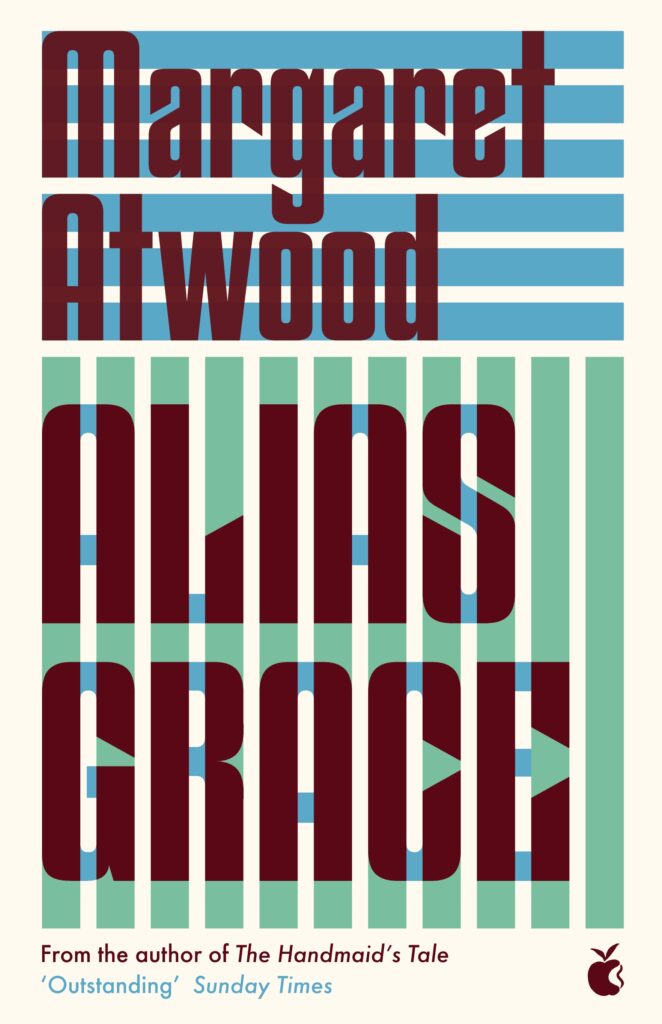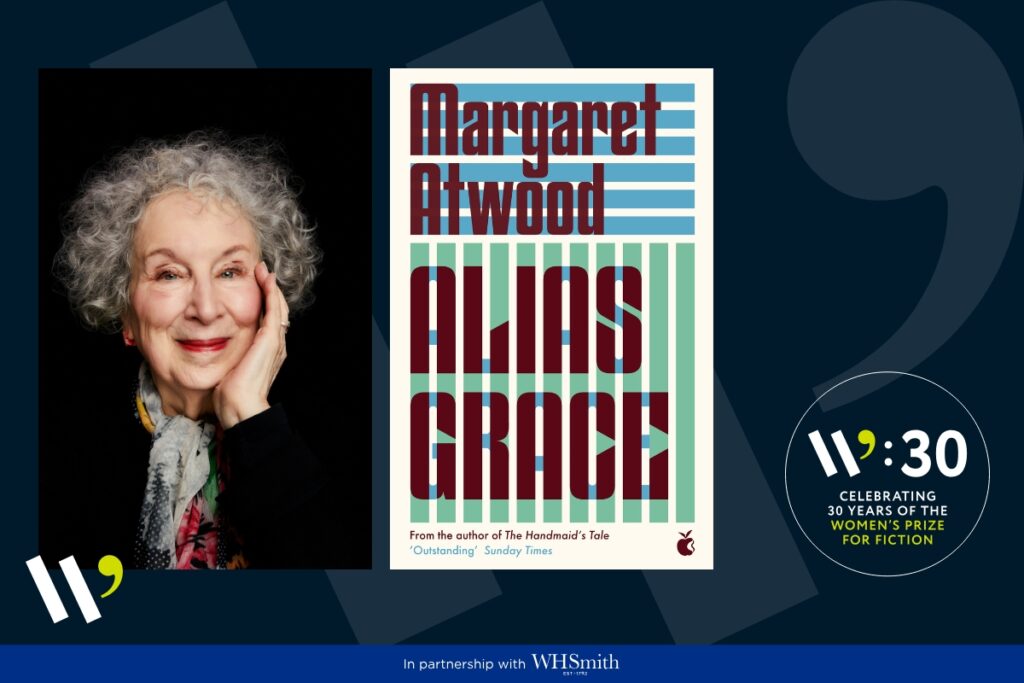In celebration of the 30th anniversary of the Women’s Prize for Fiction, we have partnered with WHSmith to bring you a selection of titles from previous Women’s Prize for Fiction winners, nominated authors and judges at Buy One, Get One Half Price at a selection of their travel stores throughout the UK.
Included in the selection is Margaret Atwood’s Alias Grace – shortlisted for the Prize in 1997. We caught up with Margaret to learn more about her book, what she looks for in a book as a travel companion, and the Women’s Prize’s impact on her.
What has it meant to be part of the Women’s Prize over the past 30 years?
I can’t believe it’s been 30 years. The Orange Prize, as it was when it began, threw the best parties and sold a lot of books. I remember in particular a party in tents down by a river, with women dressed as birds swinging on trapezes – or am I hallucinating? Three of my books were shortlisted for the prize, including Alias Grace, and though none of them ever won, the parties were fun.
What does the Women’s Prize for Fiction mean to you?
There has been some controversy surrounding the idea of a prize for fiction just for female authors. Does it relegate them to a ghetto in a condescending way, implying they can’t compete with men, or does it give them publicity they would otherwise be unlikely to get? Certainly such a prize was justified when it first began: literary prizewinners were disproportionately male, and the notion that female authors – unless very old or dead – were lightweight was common. Now that editors at publishing houses are overwhelmingly female and prizewinners tend to be as well, do we still need a women’s prize? With the shift in the zeitgeist enabled by the Trump administration’s not so secret anti-woman agenda, I’d say yes.
As a reader, what are you looking for in a book when you choose it as a travel companion?
Depends what I’m working on. Usually books I take with me have to do with some current project or other. Either that, or they are pure escapism. Right now I have A Tale of Two Cities with me, as I’m thinking a lot about the French Revolution and its similarity to the times we live in. That revolution was a step back for women, by the way. Olympe de Gouges, author of A Declaration of the Rights of Women and of the Female Citizen, was sent to the guillotine. Hint: the real heroine of A Tale of Two Cities is Mme Defarge, that Victorian nightmare: a strong, independent, though vengeful woman who bosses men around. Take a look at Blanche Yurka’s portrayal of her in the 1935 film starring Ronald Colman as Sidney Carton and you’ll see what I mean.
Introduce your book to a new reader.
Alias Grace is closely based on a real double murder that took place near Toronto, Canada, in 1843. Thomas Kinnear, a gentleman farmer, was found dead in his cellar, along with his young housekeeper, Nancy Montgomery. His maidservant – Grace Marks, using an alias – and his manservant, James McDermott, had run off to the United States, taking Kinnear’s wagon, his valuables, and Nancy Montgomery’s clothing. They were pursued and brought back to Toronto. McDermott was hanged; Grace was given a life sentence in the Kingston penitentiary. No one ever knew whether she was the instigator, a participant, or an innocent 16-year-old coerced by a villain. Evidence was contradictory. I wanted to write a novel that accounted for each of the contradictory versions, using Grace’s story as told to a medical investigator during a high point of Spiritualism – was Grace somehow possessed? – and also her inner thoughts. When the novel was made into a stunning Netflix mini-series, I was asked to choose sides: Yes or No. But I could not. Reader’s choice!









